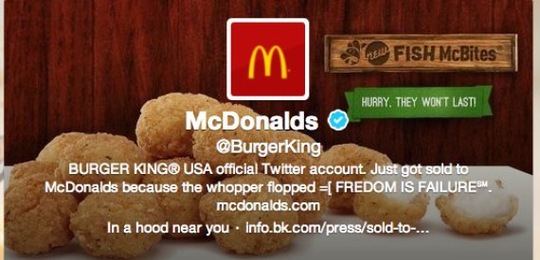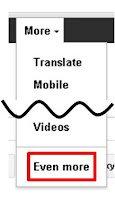Your title is awesome...or is it? If you're not getting clicks, is it a problem with your title...or WHERE you are putting that title?
Doing a little bit of work with different groups makes me realize one thing. A title in one (1) place might be terrific, but a title in another place might be a colossal failure.
See Also: 6 Great Headline Ideas That Make People Read Your Book, Article, Blog Post, or Press Release
Depending on your goal, determining whether title or headline is good--and effective--is not simply following the same, mindless recipe. Well, it might be, but we have to make sure that our title fits the user's expectations while meeting our expectations, too.
Key Point: Good Titles help our reader do what we want them to do, and they're happy for it.
There might be other breakdowns, but I notice that there are different objectives based on the Call-to-Action. That is somewhat formal terminology meaning that a good title makes the reader want to do what we want them to do.
Let us explore a few different media types:
- Classified Ad (or Flyer)
- Search Engines (i.e. Google, Yahoo, Bing, etc.)
- Newspaper
- Social Media (i.e. Facebook, Twitter, LinkedIn, etc.)
Titles or headlines for each of these should look different.
Media Type: Classified Ad (or Flyer)
Here we want you to buy, call, email, or something like that.
So what type of title makes sense here?
Here, in addition to WHAT we're selling, we want to know what BENEFITS our customer is seeking and either state or imply that in the headline.
Example #1: Highrise for Rent in Chicago - 2Bedrooms - Lake View
Example #2: SALE: $2000 Discount on Cars Sold TODAY
Example #3: Call before Wednesday and Receive Coupon - Buy 1 Get 1 Free
Example #4: Come Vote TODAY to Keep Police Protecting Your Neighborhood
In each of these cases, it prompts you to take a specific action. The ads either point out an obvious BENEFIT from following our targeted action or a disturbing CONSEQUENCE from NOT taking action.
It's even better if we find a way to prompt action sooner rather than later.
See Also: Hidden SEO Internet Marketing Secret: Classified Ads Really Work--Just not how you expect!
Media Type: Search Engines (i.e. Google, Yahoo, Bing, etc.)
Search engines try to guess which websites will provide answers to things that people want to know or find.
So what type of title makes sense here?
We want to identify what our customer or reader WANTS TO SEE and include THAT WORDING in our title.
When search engines, like Google, pull up websites in its search results, it shows the (a) Title and (b) a Snippet. Of the two, the TITLE is more visible and likely plays a stronger role in Google selecting our site over another.
More importantly, since the Title is in
BOLD and a little
LARGER, people NOTICE it a little more quickly. So do you think it might make sense to include the words that people are typing in your TITLE?
Example #1:NFL Tie-breading Procedures
Example #2: How to Find a Good Accountant
Example #3: List of Mayors of Detroit
In any of these cases, is there ANY doubt what the listed website covers? (or at least SHOULD cover?)
See Also: Keyword Research Tip: Internet Marketing Research
Plus, the words the user types into the search engine are
BOLDED, drawing even MORE attention to our website listing on Google (or any other search engine).
Media Type: Newspaper
Most newspapers like to inform people of the news. While individual reporters and journalists might want people to read their respective articles, that is not the primary concern for most newspapers.
Most newspapers simply want their readers to be able to look through the paper, grab the headlines, and feel like they can decide which stories they want to read more. Mostly, newspapers want people seeing their paper as THE source for info they want to get...and keep returning to their paper to get that news.
So what type of title (or headline) makes sense here?
On the FRONT page of the newspaper, you want to make them curious. (Those articles begin on Page 1, but they continue to a different part of the newspaper...INSIDE it.)
Example-Front Page: Snow Coming Tonight - Will Schools Close?
However, INSIDE the newspaper, the best headlines quickly SUMMARIZE the news. Those headlines allow a reader to skim headlines and feel like he (or she) knows enough of the current events to keep trusting that newspaper to keep providing that info tomorrow...and the next day...and so on.
Example #1-Inside Page: Snowstorm tonight predicted to be biggest in 5 years
Example #2-Inside Page: City Committee members meeting today to discuss possible park expansion
Example #3-Inside Page: ReallyBigg Company laying off dozens of workers next month
Example #4-Inside Page: Local Team drops another game to Other Team 64-57
Notice the difference between the "Front Page" example and the "Inside Page" examples. In the Front Page example, you HAVE to read more...to get the story. The Inside Page headlines give you enough to get the news, and you--as the reader--can decide to get more details.
If we own a newspaper, we want eyeballs to roam to as many different parts of the paper as possible, because that increases the chance that readers will see more of the advertisements, the real economic driver (what really makes them money); it's not the readership.
Key Point: Good newspaper titles keep people's eyes moving by summarizing news.
NOTE: Online versions of newspapers have a different model. They want you to spend time on pages for individual articles and news stories.
Media Type: Social Media (i.e. Facebook, Twitter, LinkedIn, etc.)
Even after a few years of being part of the mainstream, social media is still nearly all of the rage.
Social media changed a lot about the way many people use computers, because it is so interactive. Things we post can be seen by people we know. Of course, the way we define people we "know" online is different than we do offline. (meaning that we might not really know them at all)
See Also: Marketing Idea: Use Twitter to Test Marketability of Headlines
When we post things on social media, we want people to click on our link to read more. This means that we want to TEASE them. We want to give them JUST ENOUGH to make them want more.
Generally, people click to read things online for a few different reasons:
- Entertainment - We give the impression that we will be funny or lighthearted.
- Nosy - We give the impression that there is something "juicy" here.
- Education - We address something that they want to learn.
- Thought Provoking - We might state something controversial to make them think.
People get overwhelmed with things to read while they are on the Internet. Plus, we're competing with other things, like games, social exchanging between friends, etc.
So we need to find ways to capture their attention to make it seem worth their while to spend their time with something we write.
See Also: Twitter - The Combo Punch - An Effective Way to Use It
Example-Entertainment: Movie Review - Star Power Doesn't Light Movie
With entertainment, it helps if we tease people, but people tend to be drawn toward entertainment easily enough. In many cases, we could simply state a summarizing headline, similar to a newspaper headline.
Example-Nosy: Local Political Figure Caught with Women - Not His Wife
These could be good or bad examples, but most of us LOVE scandals...or anything that could be seen as scandalous. Plainly put, we just like to get "the dirt." If we appeal to this to the right people, clicks will NEVER be a problem.
Example-Education-Bad: Marketing Better
Example-Education-Good: 3 Basic Steps to Getting a Top Ranking on Google
Example-Education-Better: Using Google to Get More Customers: 3 Simple Steps
Educational posts are tricky, because there are SO many articles on the Net. It helps if we address a specific topic, but it's really important to address a topic that is "in demand."
Notice that the "Bad" example just gives a limp, generic title. It does not make it easy for someone to determine whether this will explain "how to" do something or simply an opinion piece, and it is not obvious what benefit the reader gets from reading this.
The "Good" example makes it clear that we will benefit, but the "Better" example makes it clear HOW we will benefit. (Why do we care about getting a "Top Ranking" on Google? Some people will know, but not everyone does.)
The best educational headlines make it seem like the reader's life will be better AFTER reading what we wrote.
Example #1-Thought Provoking: Beyonce Suggests Beauty Hides Talent for Many Performers
Example #2-Thought Provoking: How Adjusting to a New Job is Like Going through Puberty Again
The more our title makes someone scratch their head, the more likely they will keep thinking about our post...UNTIL that person clicks on it!
If we try to tie together seemingly unrelated things, that will cause people to pause (and look at our stuff).
If we imply that something most people consider to be true to actually be false, this will also draw attention (and clicks).
Are you getting as many clicks as you want? Are you sure you're using the right approach for where you are leaving that title?
I know that many people aren't.
Like this post? Other recent posts are







